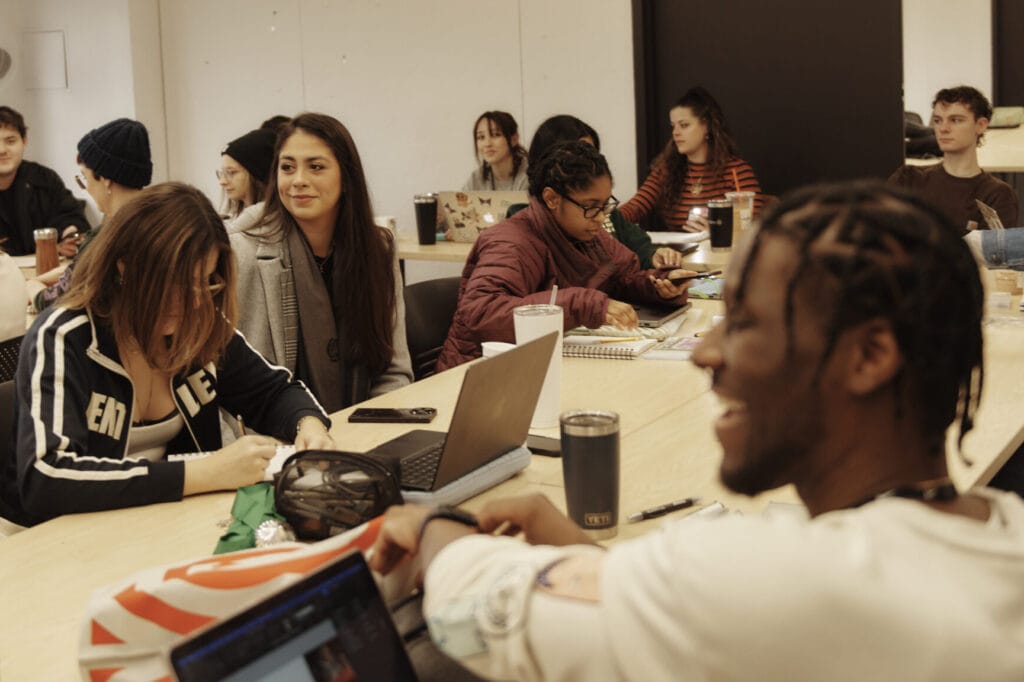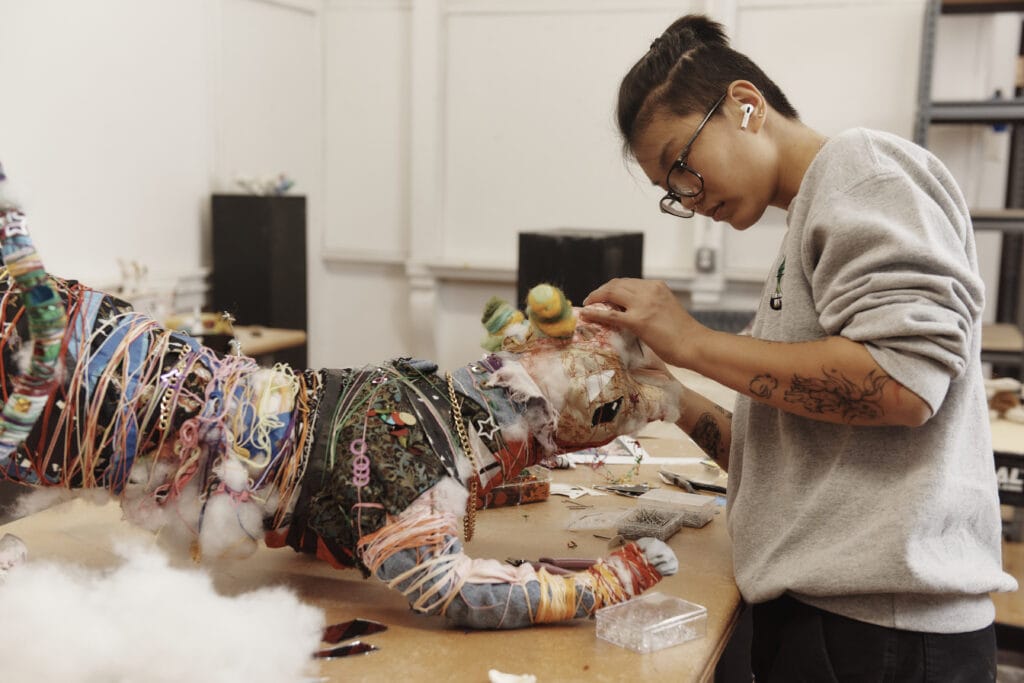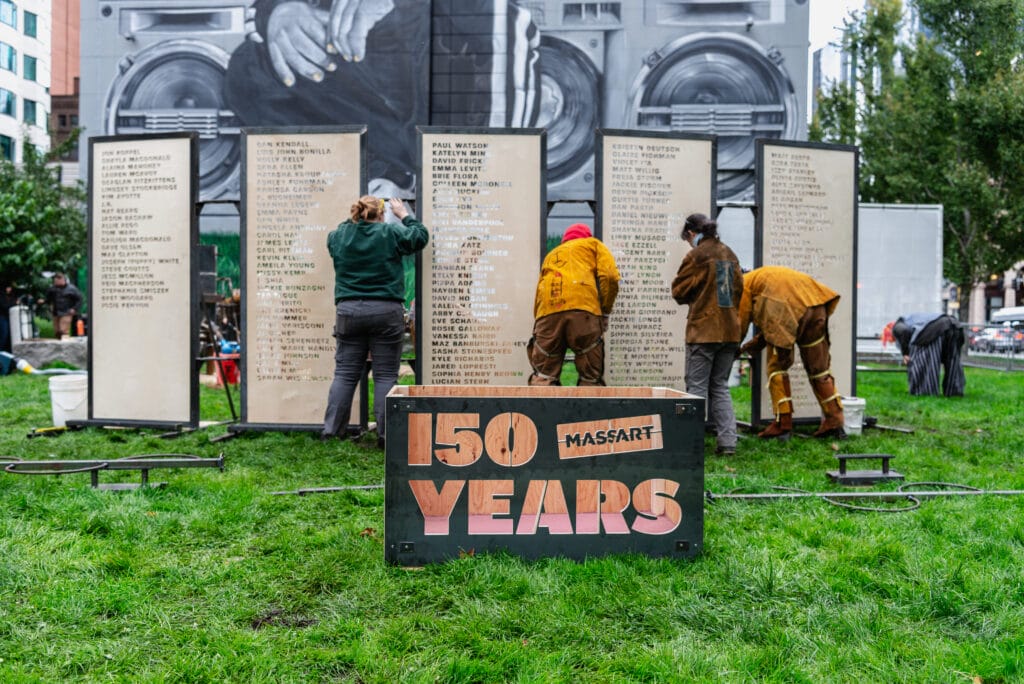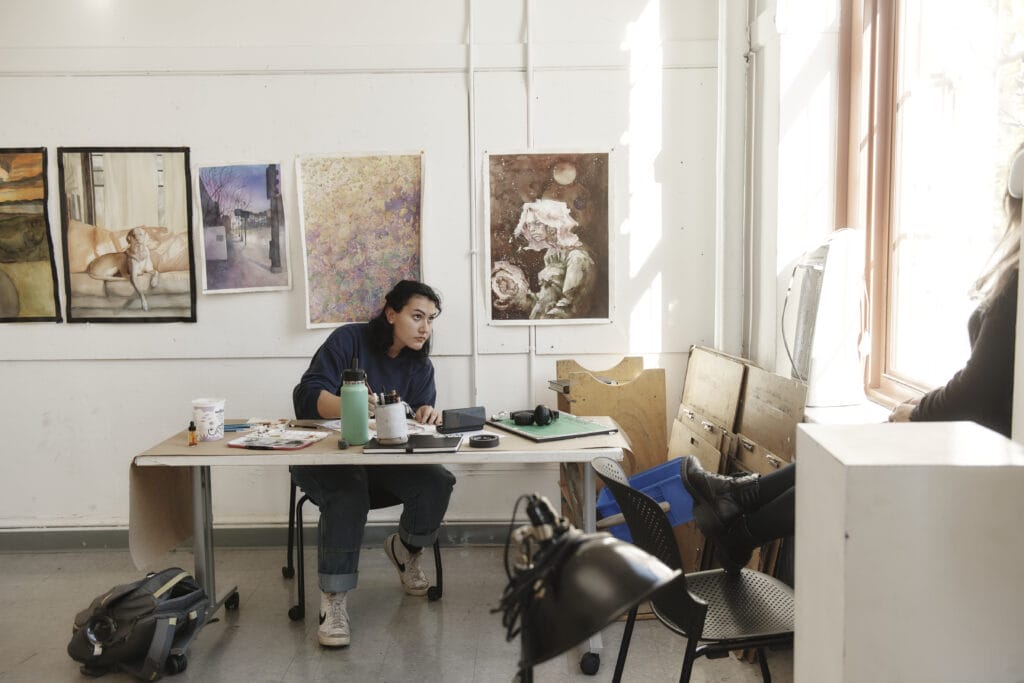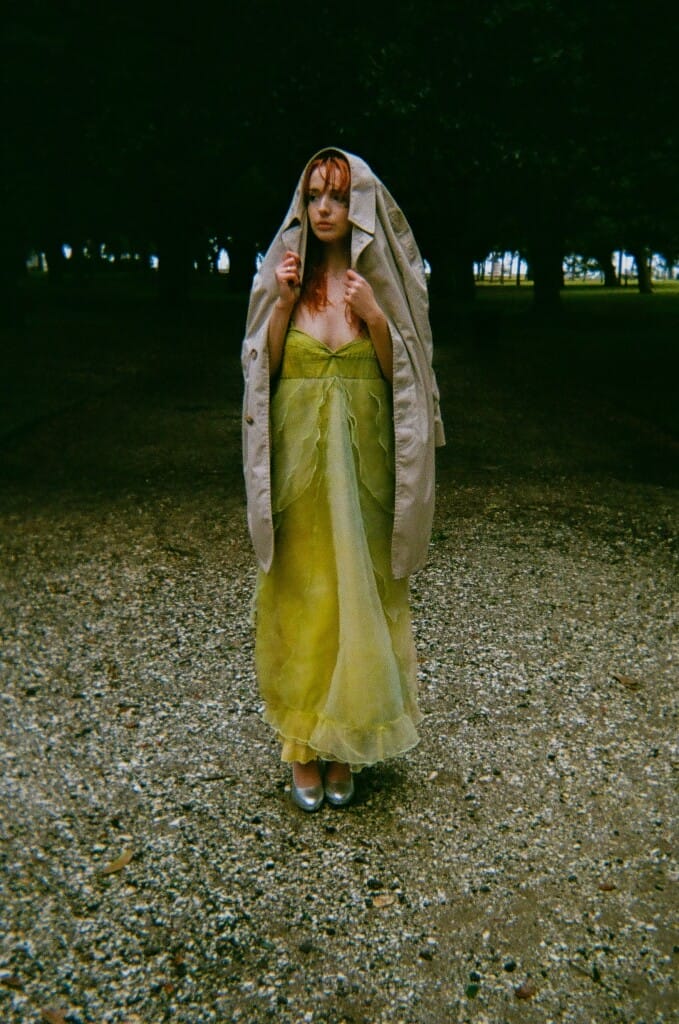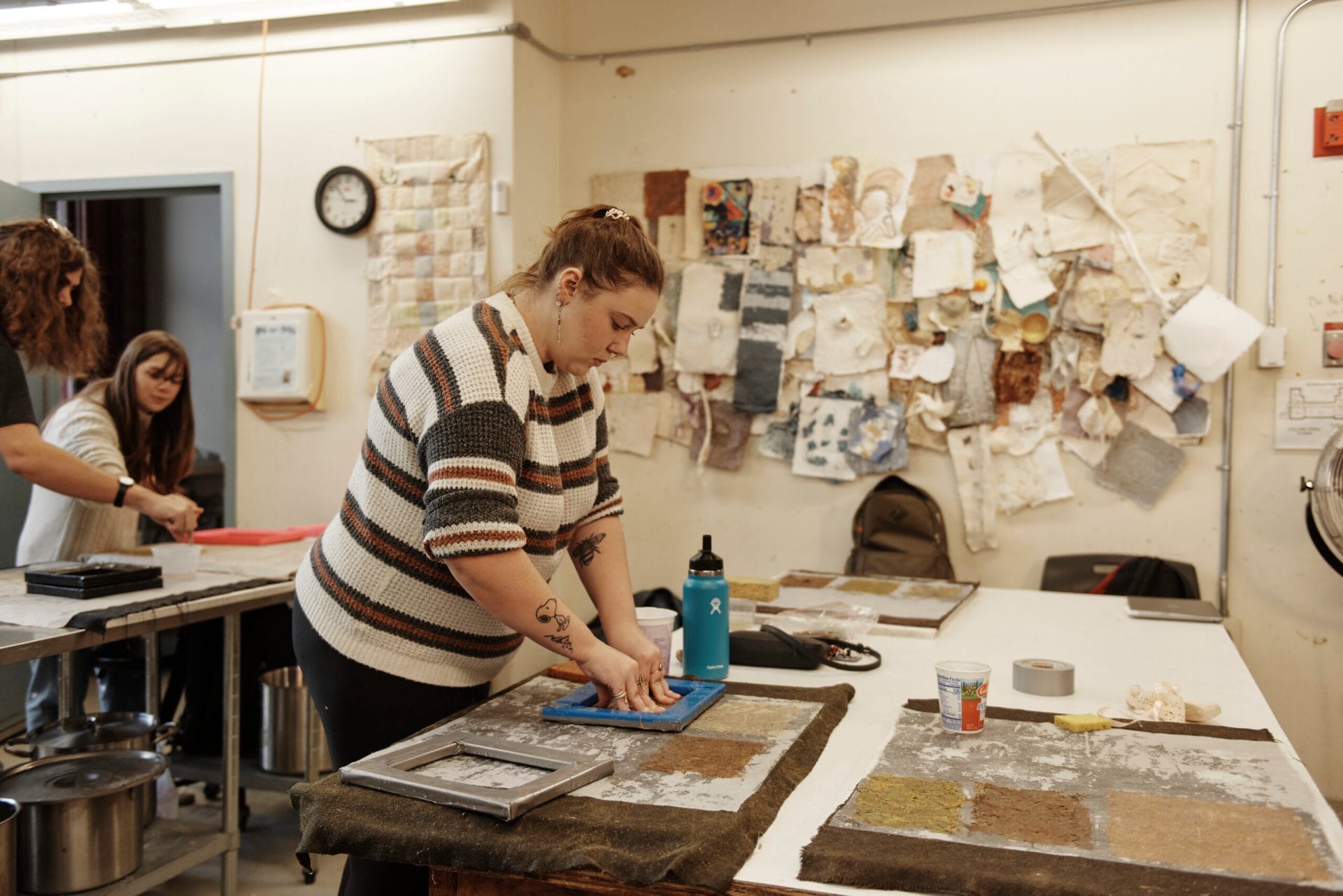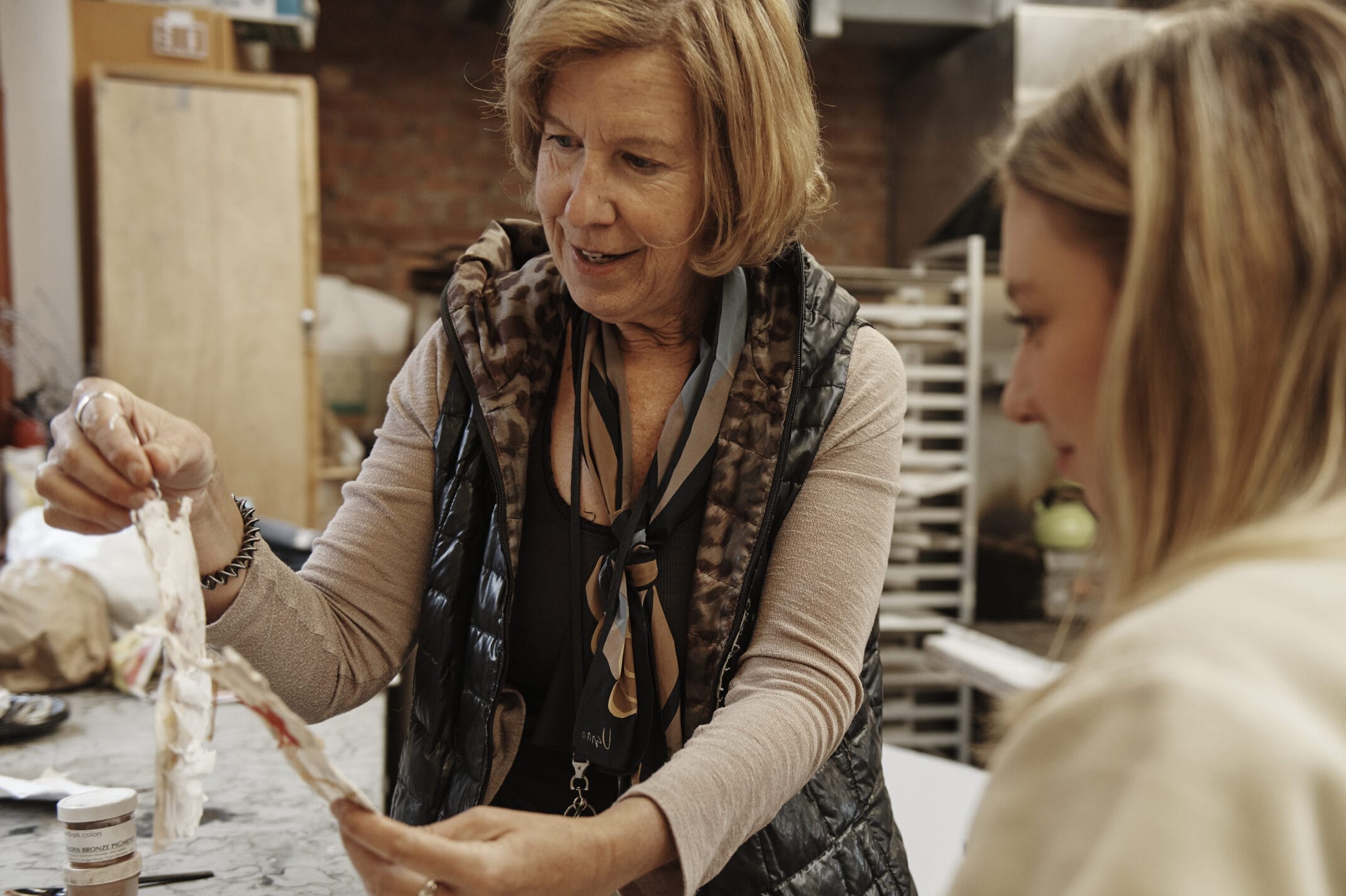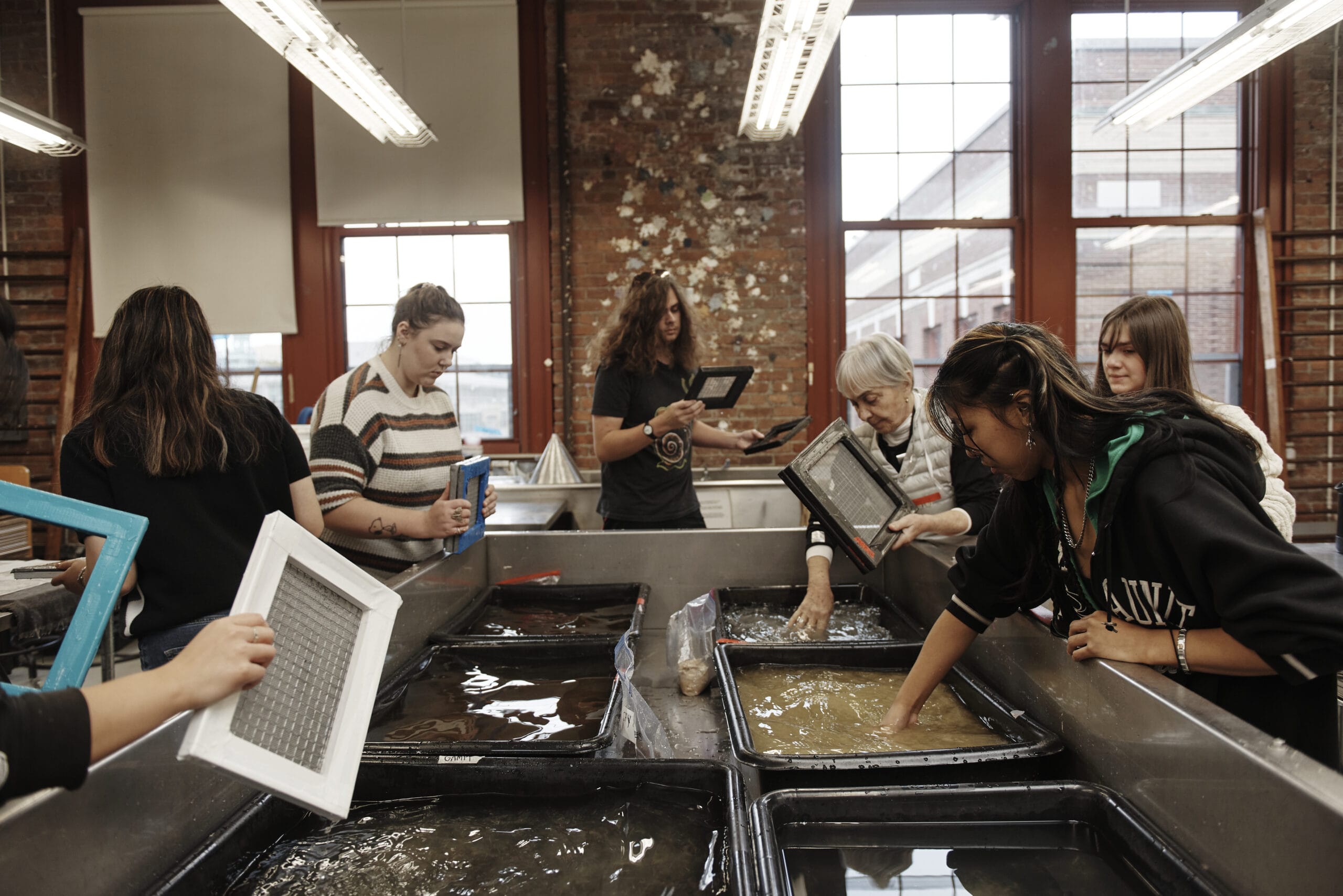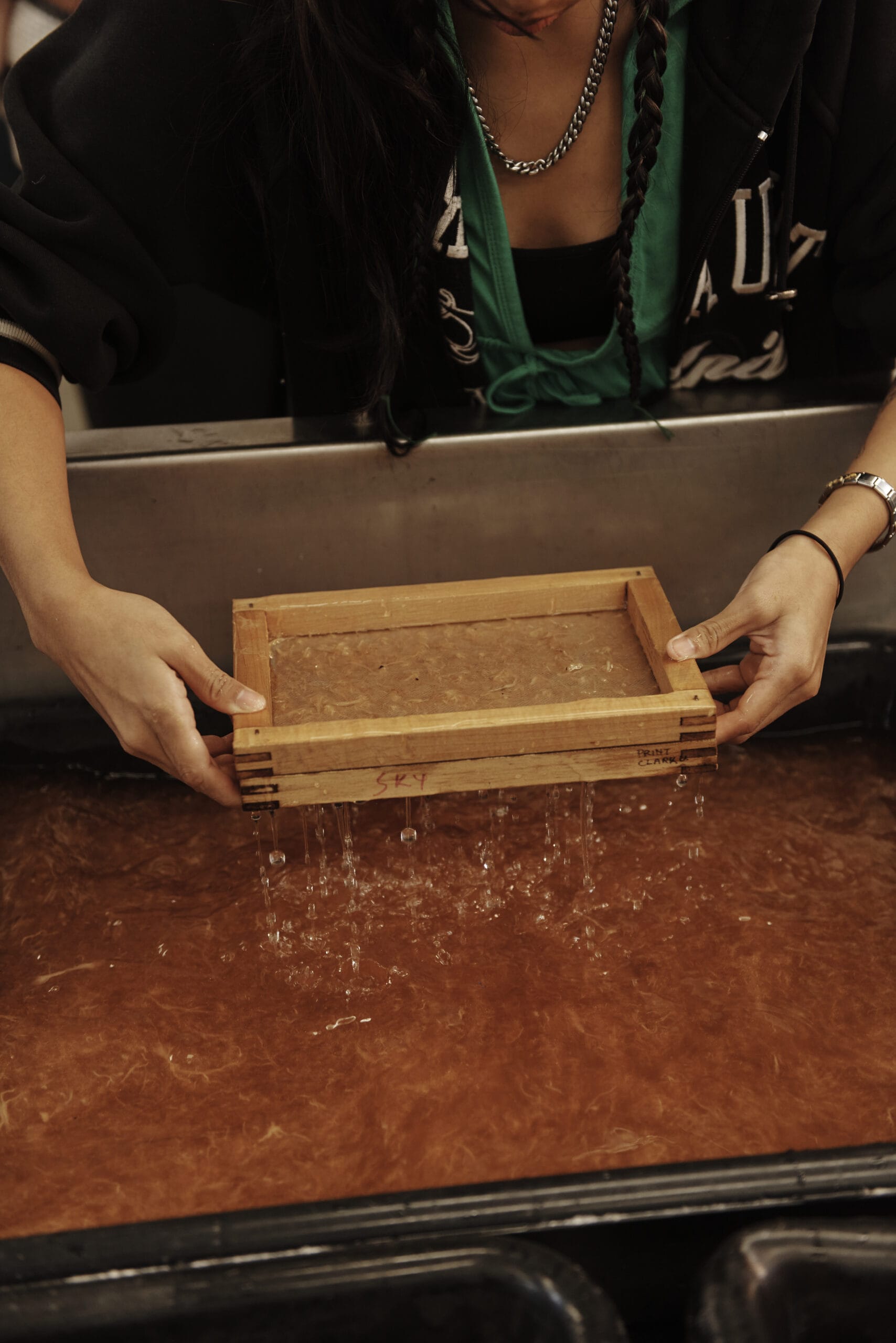The BFA Fibers Program offers coursework in weaving, surface design, knitting, felt-making, basketry, embroidery, paper and book making, dyeing, and fiber sculpture.
The BFA Fibers program offers a diverse array of courses, with the philosophy of encouraging students to make personally meaningful connections between traditional approaches and contemporary techniques.
In seminars, advanced studios, and interdisciplinary courses, students explore interdisciplinary projects, combining fibers with sculpture, performance, installation, drawing, and architecture. Issues of environmental and cultural sustainability are also at the core of our curriculum, and several of our courses are a part of the Colleges of the Fenway Sustainability Minor.
The Fibers program has evolved along with expanding definitions of the fiber medium within the field, continuing to root our curriculum in the oldest technologies while building curricular bridges to the ways in which fiber intersects with sculpture, design, performance, sustainability, and social practice.
Students are encouraged to integrate and apply their classroom learning via internships, teaching assistantships within the Fiber and Studio Foundation areas, and collaborative opportunities with area museums such as the Institute of Contemporary Art/Boston.
Alumni Success
Graduates of the Fibers program have gone on to pursue careers in textile design, textile conservation, art education, fine art, curatorial work, and entrepreneurial ventures.
Erin Robertson, ’16 BFA Fashion & Fibers, never envisioned herself at art school, but when she discovered MassArt, she knew she had to enroll. Shortly after graduation, Erin went on to win Project Runway Season 15 and open her own studio and shop in Boston.
Video directed by Dillon Buss ’12 BFA Film/Video, edited by Jack LeMay, produced by Vagrants.
BFA Learning Outcomes
Students who complete the Fiber BFA program are expected to be able to demonstrate the following learning outcomes.
- Develop skill and an understanding of the importance of craftsmanship
- Understand a wide range of approaches and methodologies to problem solving
- Develop good working habits & self discipline
- Develop cross disciplinary awareness
- Develop an understanding of conceptual, symbolic and metaphoric issues
- Develop an awareness of historical, contemporary, cross-cultural issues and artists working in their field
- Encourage their personal vision and imaginations to become a tangible reality
- Develop a working knowledge of design principles
- Develop a sense of being an artist using life and studio experience to support their ideas
- Cooperative classroom experience
- Foster collaboration among peers
- Establish relationships/ work with community
- Safety: tools, equipment, materials, processes
- To assume the responsibility of the development of their own professional career in whatever direction it may take
- Participate in critical dialogue with peers in their field
- Develop professional and vocational resources
- Sustainability

